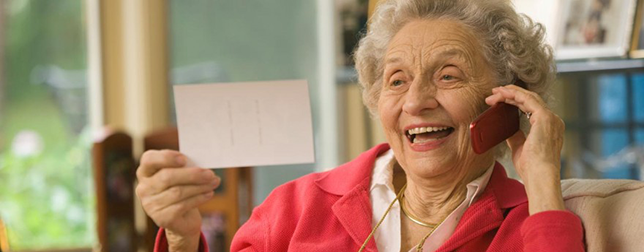As the U.S. population gets older, sicker and richer, technology giants like Apple, Amazon and Alphabet are creating devices perfectly suited to help aging Americans. The artificially intelligent voice-powered assistants created by these companies get smarter as they learn more about their users.
However, except in few instances, the companies haven’t invested sufficient resources to tailor their apps and services to an older population.
Read more New Smart Socks Help Prevent Patient Falls
According to experts, this will start to change in the coming years. One solution is to hire people who understand the needs of this population, which means the companies should hire older Americans.
“This is a total blind spot for technology companies,” said Katy Fike, co-founder of Aging 2.0, a group that supports entrepreneurs in the aging space. He said these companies should especially consider interviewing and hiring more older women.
“Women tend to live longer and continue to make buying decisions for their families and aging parents,” she said. “This is the polar opposite group to the young, male tech worker.”
Michael Skaff is a veteran tech worker and now the chief operating officer for the Jewish Senior Living Group. Skaff believes that voice assistants have “a democratizing effect.”
Many older people aren’t comfortable with smartphones or fitness trackers. These people may find their voice assistants easier to communicate with. This is also a promising technology for people with disabilities, especially those with motion disorders or visual impairments.
But Skaff believes the new products still need modifications.
For example, he said seniors usually prefer to be greeted by voice assistants immediately after setup, rather than depending on user activation. Another common complaint is that the audio is usually too low for people who are hard of hearing and should be easily adjustable, he said.
An Amazon spokesperson said in an email to CNBC that the Amazon’s Echo device is currently used by older people for controlling lights, thermostats, and other connected devices that would otherwise require them to go up and down stairs. The company recently launched Alexa Captioning to help people who are hard of hearing.
The myth about technology and older people
There’s a prevailing myth that older people are less comfortable with technology than their younger counterparts. But the fact is that the vast majority of people over 65 own cellphones. Also, many seniors prefer using laptops and tablets because of the bigger screens and touch-pads, according to studies. Because of the demand for technology among older people, AARP and other senior citizens’ groups are now offering classes to help them get acquainted with the latest technology, including gadgets and apps to help them live independently for longer.
Read more Wearables for Elderly
Other types of devices to help seniors at home include sensors that help detect falls and voice assistants that greets people who feel isolated, said Joe Angelelli, a Pittsburgh-based gerontologist who has dedicated his career to studying aging.













